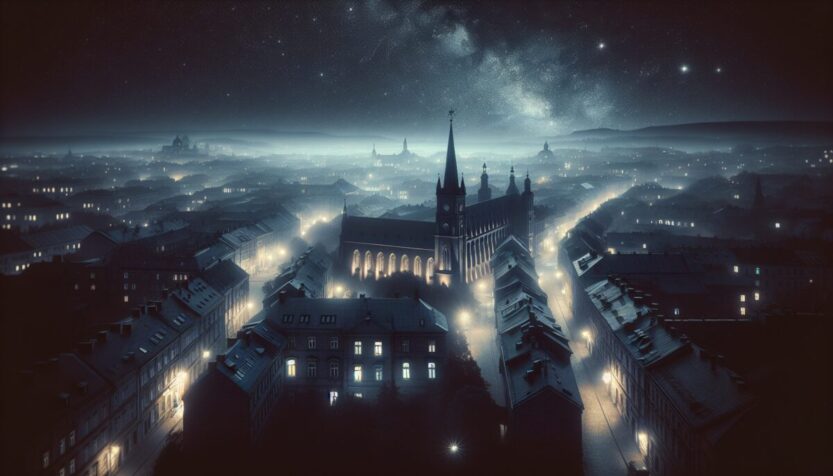This Halloween, Tucker Carlson, the former Fox News host, made headlines not just for his choice of company but also for his bizarre claims about encounters with evil. As costumed revelers filled the streets, Carlson shared the stage with Donald Trump, a man he once described as ‘a demonic force.’ This juxtaposition of Halloween festivities and serious allegations of supernatural experiences has sparked widespread discussion.
From Fox News star to Halloween spectacle
The rapid decline of Tucker Carlson’s career has been a topic of speculation since his departure from Fox News. Many wonder if his controversial remarks and texts, which included racially charged language, contributed to his downfall. Carlson’s recent claims about a demonic attack during his sleep have only added to the intrigue surrounding his public persona. Was it merely a publicity stunt, or does he genuinely believe in the supernatural? His statements raise questions about the intersection of faith, politics, and personal belief.
Claims of a demonic encounter
In a recent interview, Carlson recounted a harrowing experience where he believed he was attacked by a demon while sleeping. He described waking up with claw marks on his body, claiming that he had been ‘physically mauled.’ This narrative has drawn skepticism, with many suggesting that the injuries could have been caused by his pets. However, Carlson insists that his experience was real and transformative, leading him to delve deeper into religious texts. His assertion that he has ‘direct experience’ with evil has left many questioning the nature of his beliefs and the implications for his audience.
Trump’s appearance and the atmosphere of the event
On the same night, Trump appeared at Carlson’s event in Glendale, Arizona, where he delivered a series of familiar, rambling anecdotes. The atmosphere was charged, with Trump making controversial remarks about fellow Republicans, yet Carlson’s interview style remained notably soft. This dynamic raises concerns about the responsibility of media figures in addressing the rhetoric of political leaders. As Carlson continues to align himself with Trump, the implications of their partnership on public discourse and the perception of political evil become increasingly significant.
As the Halloween festivities unfolded, the blend of political commentary and supernatural claims from Carlson has left many pondering the nature of evil in contemporary society. The questions posed by Carlson and his interactions with Trump may reflect broader societal anxieties about morality, leadership, and the unseen forces that influence our lives.




